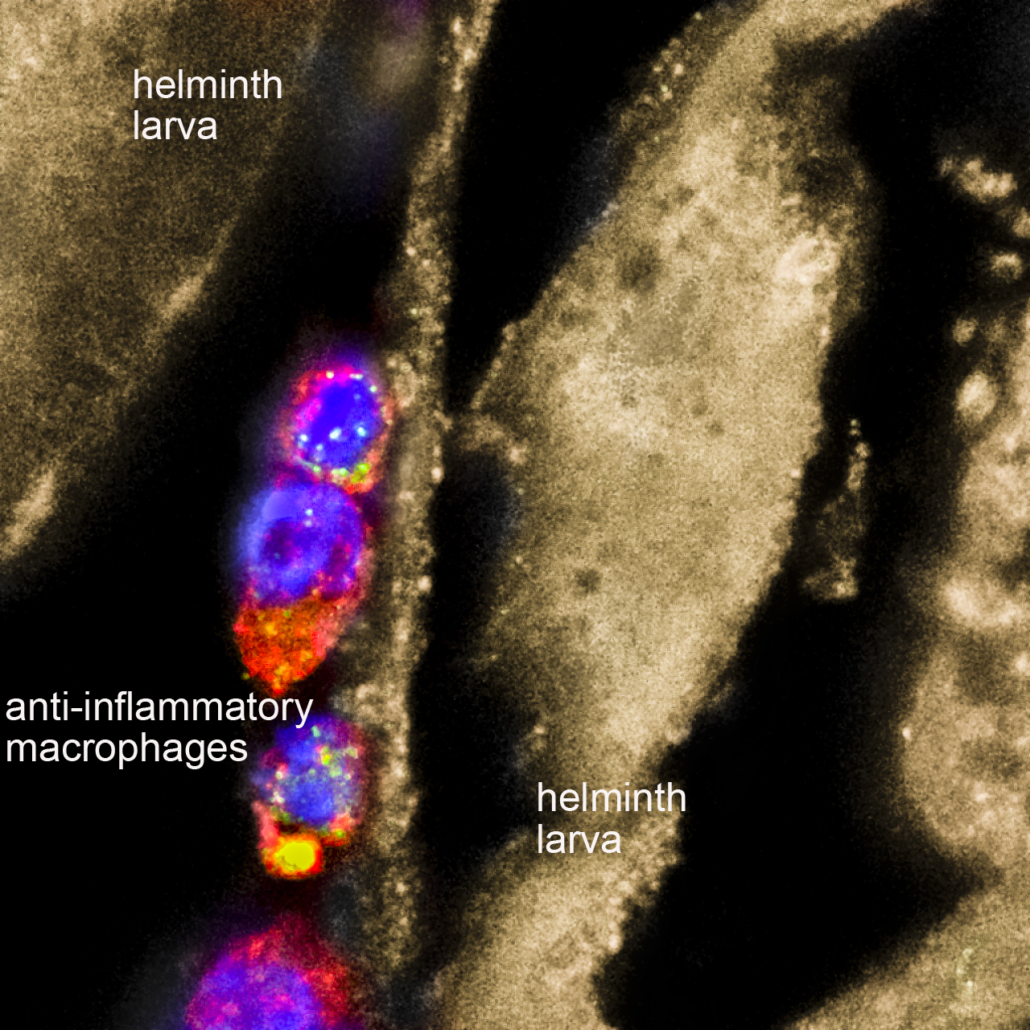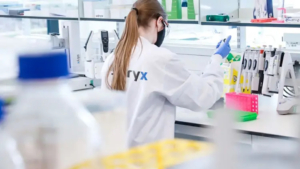
Drug from worms dampens autoimmune response
German researchers have isolated a substance from parasitic roundworm larvae to alleviate inflammation and treat asthma in a rodent model.
According to researchers headed by Julia Esser-von Bieren from Helmholtz Center Munich, Germany, the products from parasitic helminths might help treat inflammation and reduce the severity of allergic diseases. So-called type-2 inflammation is a prominent feature of asthma and allergic conditions. Previous research on helminths such as roundworms demonstrated that these parasites can either stimulate or counteract type-2 inflammation when they infect humans. The researchers now demonstrated that larvae of Heligmosomoides polygyrus bakeri – an intestinal parasite of mice – induced a strong anti-inflammatory effect in mice with dust mite-triggered asthma.
Specifically, treating the mice intranasally with larval extract reduced allergic inflammation in the airways of the rodents, primarily by stimulating the anti-inflammatory molecules COX and prostaglandin E2. Further studies attributed the immune-regulating effects of the larval extract to the helminth enzyme glutamate dehydrogenase.
The larval extract also restrained inflammatory activity in human immune cells and triggered an anti-inflammatory switch in the activity of eicosanoids, which mediate inflammation but have been difficult to target effectively to achieve a therapeutic benefit. Furthermore, the treatment slowed the movement of granulocytes that were isolated from patients with aspirin-exacerbated respiratory disease, a severe inflammatory condition. The team concludes that the ability to trigger the eicosanoid switch could allow helminth-based treatments to target a wider array of inflammatory pathways than current anti-inflammatory drugs.


 Sitryx Therapeutics
Sitryx Therapeutics
